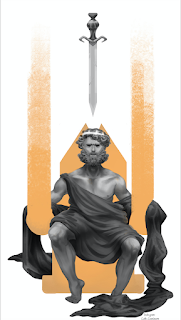1) Read pages 54 through 58
3) KWO the story as described on pg 55 -> new format!
4) Use your KWO to write/type your essay.
Indicate 1 of each DRESS UP
• Remember that DRESS UPs are never the first word of a sentence.
Indicate 1 of each OPENER that you understand and feel confident using. For one person that might be every OPENER, for another, it might be 2 OPENERs. Take this at your own pace.
Staple together: Essay (top), Checklist (middle), KWO (bottom)
∞∞∞∞∞∞∞∞∞∞∞∞∞∞∞∞∞∞∞∞∞∞∞∞∞∞∞∞∞∞∞∞∞∞∞∞∞∞∞∞∞∞∞∞∞∞∞∞∞∞∞∞∞∞∞∞∞∞∞∞∞∞∞∞∞∞∞∞∞
Here is an interesting video on the terms:
"sword of Damocles" or "Damocles' sword"
“Many of us here in the low lying areas of New Orleans live in the shadow of Damocles’ sword, for we know that the next hurricane could easily wash our homes away.
“Dennis had a health scare when he was young. The diagnosis may have been wrong, but for many weeks it became a sword of Damocles.”
∞∞∞∞∞∞∞∞∞∞∞∞∞∞∞∞∞∞∞∞∞∞∞∞∞∞∞∞∞∞∞∞∞∞∞∞∞∞∞∞∞∞∞∞∞∞∞∞∞∞∞∞∞∞∞∞∞∞∞∞∞∞∞∞∞∞∞∞∞
JUST FOR FUN
Another telling of the tale from the history.com website:
The Sword of Damocles
The famed “sword of Damocles” dates back to an ancient moral parable popularized by the Roman philosopher Cicero in his 45 B.C. book “Tusculan Disputations.” Cicero’s version of the tale centers on Dionysius II, a tyrannical king who once ruled over the Sicilian city of Syracuse during the fourth and fifth centuries B.C.
Though rich and powerful, Dionysius was supremely unhappy. His iron-fisted rule had made him many enemies, and he was tormented by fears of assassination—so much so that he slept in a bedchamber surrounded by a moat and only trusted his daughters to shave his beard with a razor.
As Cicero tells it, the king’s dissatisfaction came to a head one day after a court flatterer named Damocles showered him with compliments and remarked how blissful his life must be. “Since this life delights you,” an annoyed Dionysius replied, “do you wish to taste it yourself and make a trial of my good fortune?” When Damocles agreed, Dionysius seated him on a golden couch and ordered a host of servants to wait on him. He was treated to succulent cuts of meat and lavished with scented perfumes and ointments.
Damocles couldn’t believe his luck, but just as he was starting to enjoy the life of a king, he noticed that Dionysius had also hung a razor-sharp sword from the ceiling. It was positioned over Damocles’ head, suspended only by a single strand of horsehair. From then on, the courtier’s fear for his life made it impossible for him to savor the opulence of the feast or enjoy the servants. After casting several nervous glances at the blade dangling above him, he asked to be excused, saying he no longer wished to be so fortunate.
For Cicero, the tale of Dionysius and Damocles represented the idea that those in power always labor under the specter of anxiety and death, and that “there can be no happiness for one who is under constant apprehensions.” The parable later became a common motif in medieval literature, and the phrase “sword of Damocles” is now commonly used as a catchall term to describe a looming danger. Likewise, the saying “hanging by a thread” has become shorthand for a fraught or precarious situation.
One of its more famous uses came in 1961 during the Cold War, when President John F. Kennedy gave a speech before the United Nations in which he said, “Every man, woman and child lives under a nuclear sword of Damocles, hanging by the slenderest of threads, capable of being cut at any moment by accident or miscalculation or by madness.”
https://www.history.com/news/what-was-the-sword-of-damocles

No comments:
Post a Comment